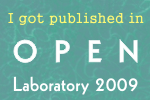Feliĉa Naskiĝtago Doktoro Esperanto

Google flew the green-starred flag of hope yesterday, in celebration of the 150th birthday of a man who constructed a whole language based upon hope. He called himself Doctor Hopeful, and he wanted that the language he created would help break down national barriers. He made it easy to learn, so that people would be motivated to learn it as their second language. They would then speak the Language of Hope, understand each other, and not be so insular. As isolation breed suspicion, and suspicion breeds hostility and ultimately violence.
Unfortunately, neither his language nor his vision of a more understanding and tolerant mankind caught on. One hundred and fifty years after his birth, and 122 after the publication of his book, the world is no friendlier nor tolerant than it was when Ludwig Zamenhof set to correct it by publishing his book International Language: Foreword And Complete Textbook under the pseudonym of Doktoro Esperanto.
English has become the second language of choice for many. The increasing dominance of English speaking powers throughout the last 200 years resulting in English as the lingua franca is interpreted by many that English was adopted as an imposition from above. English is perceived by many who wish to preserve their non-Anglo cultures as overwhelming, a threat to their local culture, which would be diluted to extinction through constant bombardment by English speaking movies, TV shows, and Internet provided content. Zamenhof would not have liked that, as Esperanto was intended to be an adoption of choice, without carrying any threatening cultural baggage.
The Internet itself is hailed by many as a medium to strike down barriers to knowledge and help communications. But national firewalls, traffic monitoring, crackdowns on content sharing, criminal abuse and vilification in the popular media cause many to see it more as a threat to their own society, rather than a promise for all societies. And let us not forget that it is still mostly a developed world’s medium, with most of the content and cultural narrative originating from rich countries.
Neither a world-wide communication technology nor a globally dominant language seem to have brought us closer to the peaceful, understanding and egalitarian world that Zamenhof envisioned. We should be mindful of that, and of Esperanto. The Esperanto language is viewed as a curiosity at best. Esperantists as people with a quaint hobby. Happily, Esperantists do not view themselves as such. They are continuing the mission of Zamenhof for a more understanding humankind. Esperanto is kept alive by the two million who speak it, by national and international organizations, by books, magazines, and even music. Happy Birthday Doctor Hopeful.
Martin Weise of the Swedish Esperanto-singing Band Persone. from his Solo Album “more than nothing” Pli ol nenio.



















Good luck Esperanto
It’s a pity that many people do not know that it has become a living language
Your readers may be interested in http://video.google.com/videoplay?docid=-8837438938991452670
A glimpse of Esperanto can be seen at http://www.lernu.net